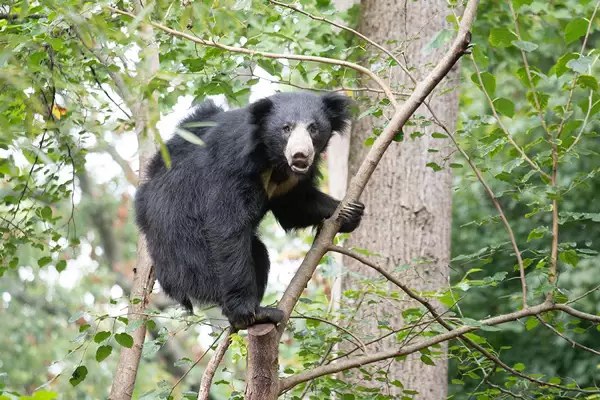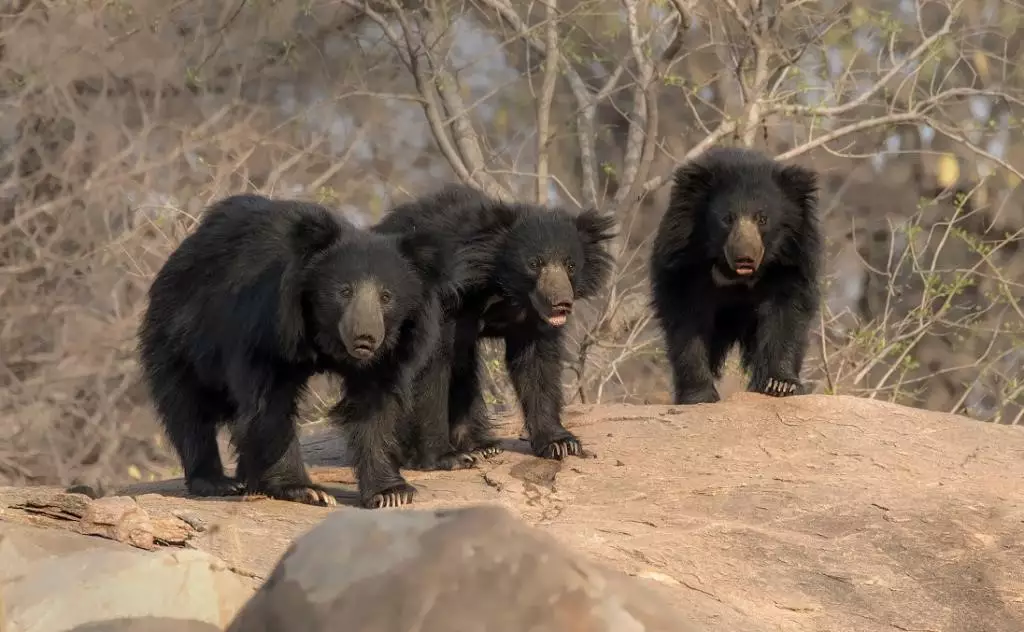A recently published survey conducted in Western Ghats of Karnataka, reflected the harmonious coexistence of Sloth Bears with humans.
About Sloth Bear:
- The Indian sloth bear (Melursus ursinus) is a unique and charismatic species native to the Indian subcontinent, mainly India, Sri Lanka and Nepal.
- Sloth bears occupy a significant 67% of potential habitat in India.
- Appearance: It has shaggy, dusty-black coat, pale, short-haired muzzles, and long, curved claws used to excavate termites and ants.
- A cream-colored V or Y shape usually marks their chests, but without an undercoat which helps to overcome the native warm climate and protects them from tropical insects.
- Unique features: It is called labiated bear, because of long lower lip and palate used for sucking insects and nostrils can close for protection against insects.
- They have a keen sense of smell, as well as near-sight similar to that of humans.
- Habitat: Tropical lowland forests and sometimes tall grasslands that provide dense cover.
- Diet: During the summer, they eat fruits like tendu, amaltas, and ber. During the winter, they eat mostly insects like ants and termites.
- Conservation Status:
- IUCN Red List: Vulnerable (VL)
- Wildlife Protection Act, 1972: Schedule 1
- CITES: Appendix I
- Threats: Used as Dancing bears by nomadic tribe- Kalandars, Human-sloth bear conflict, Habitat fragmentation due to agriculture.
Ref: Source
| UPSC IAS Preparation Resources | |
| Current Affairs Analysis | Topperspedia |
| GS Shots | Simply Explained |
| Daily Flash Cards | Daily Quiz |


